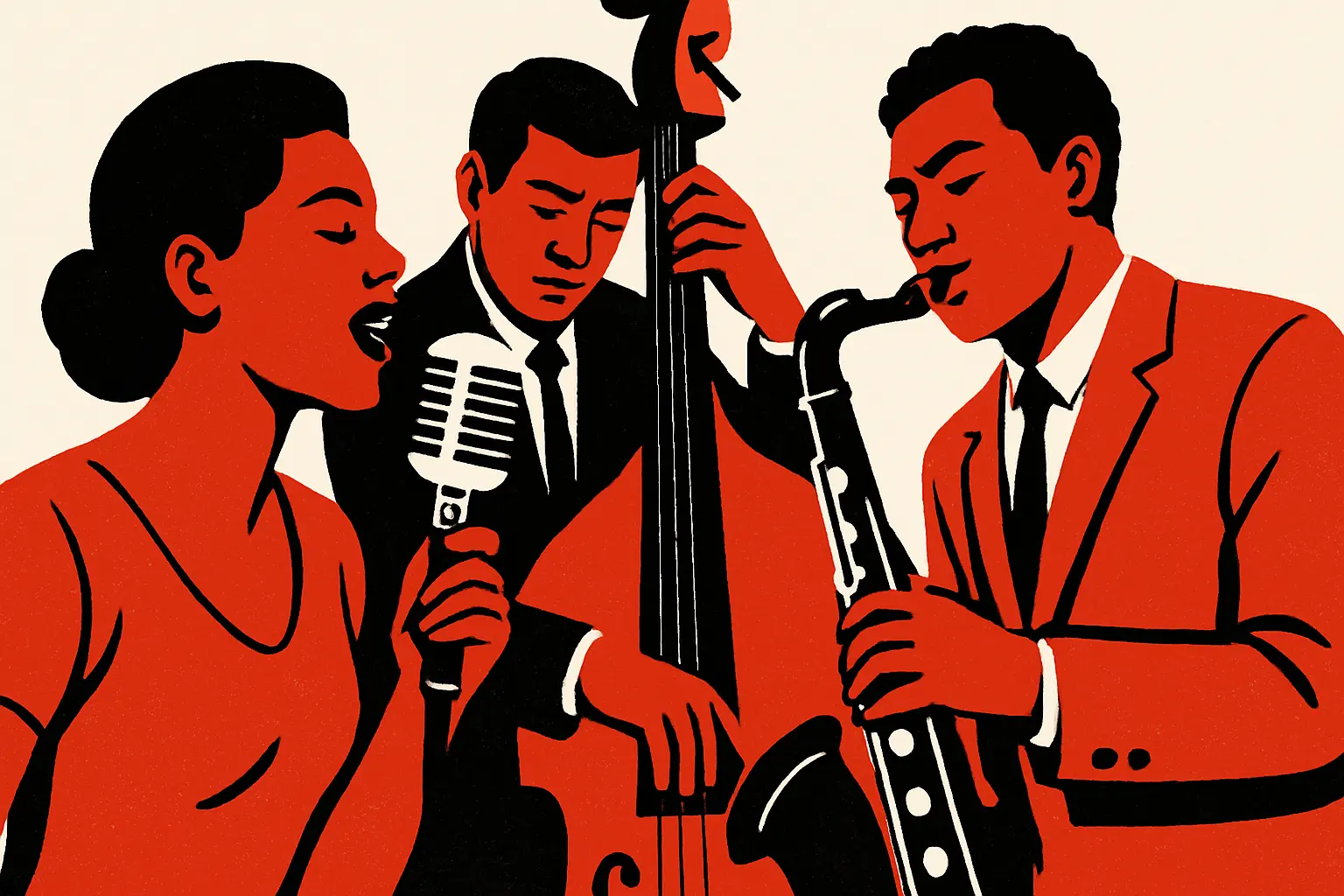If you’ve ever wondered what is bebop and why it’s such a big deal in jazz history, you’re in for a treat. Bebop isn’t just another jazz style — it’s a high-energy, complex, and expressive movement that transformed the way we think about improvisation and rhythm.
What is Bebop?

Bebop is a style of jazz that emerged in the 1940s, defined by fast tempos, complex chord progressions, and virtuosic improvisation. Unlike the smoother swing era before it, bebop was bold, challenging, and full of unexpected twists.
What Defines Bebop?
- Speed & Complexity – Bebop tunes often push tempos to the limit.
- Intricate Melodies – Full of leaps, chromatic runs, and unexpected phrasing.
- Advanced Harmonies – Frequent chord changes and substitutions.
- Small Combos – Typically a quintet or quartet rather than a big band.
🎶 How is Bebop Different from Jazz?
Technically, bebop is jazz, but it differs from earlier jazz styles like swing in several ways:
- Focus on Soloists – Bebop is built around individual improvisation rather than big-band arrangements.
- Listening Over Dancing – Swing was dance music; bebop was for listening and appreciating the artistry.
- Faster Tempos & More Chords – Demanding more skill from both musicians and audiences.
Which Best Describes Bebop?
Bebop is best described as “fast, virtuosic, and harmonically complex jazz designed for artistic expression rather than commercial entertainment.”
Who Was the Biggest Musician in Bebop?
Several legends shaped bebop, but Charlie Parker — nicknamed “Bird” — is often considered the biggest and most influential bebop musician. His saxophone playing redefined jazz improvisation. Other key figures include:
- Dizzy Gillespie (trumpet)
- Thelonious Monk (piano)
- Bud Powell (piano)
- Max Roach (drums)
Famous Bebop Tracks to Explore
- “Ornithology” – Charlie Parker
- “A Night in Tunisia” – Dizzy Gillespie
- “‘Round Midnight” – Thelonious Monk
- “Salt Peanuts” – Dizzy Gillespie & Charlie Parker
🔍 Final Take
Bebop wasn’t about playing it safe — it was about pushing jazz to its artistic limits. If you’re ready to explore music that’s as challenging as it is rewarding, start with Charlie Parker, Dizzy Gillespie, and Thelonious Monk, and hear for yourself how bebop forever changed the sound of jazz.
Dicover more – Here Comes the Boom Song: From Memes to Movie Vibes
